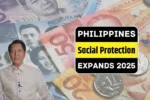Singapore continues to strengthen its social safety net with a $900 Senior Bonus for 2025, a measure designed to provide direct financial support to the elderly population. Rising living costs, particularly in healthcare, food, and housing, have placed added pressure on retirees who may not have stable income sources. This payout under the Assurance Package helps cushion the impact of inflation while allowing seniors to enjoy a greater sense of financial security.
Purpose of the Senior Bonus
The Senior Bonus forms part of Singapore’s larger Assurance Package, which was created to ease the burden of higher living costs and the impact of new tax adjustments. Unlike one-off relief measures, the package spreads support across multiple years to ensure predictability and continuity. This long-term structure helps seniors manage expenses with greater stability, allowing them to focus on their well-being rather than worrying about short-term financial gaps.
The government recognizes that seniors are among the most vulnerable to rising prices since many rely on limited pensions or savings. This bonus therefore acts as an essential safety net, providing both financial relief and peace of mind.
Eligibility for the 2025 Senior Bonus
Eligibility for the $900 payout has been carefully designed to reach seniors who truly need the assistance. To qualify, recipients must meet several requirements:
- Be a Singapore citizen aged 65 or older in 2025
- Reside in Singapore during the year of disbursement
- Have an annual income not exceeding $34,000 in the previous assessment year
- Own no more than one property
- Live in a property with an Annual Value of $31,000 or below
By setting these criteria, the government ensures that seniors with lower financial resources benefit the most. The focus remains on inclusivity and targeted assistance for those most at risk of financial strain.
Payment Structure and Distribution
The $900 Senior Bonus will be distributed in stages rather than as a lump sum. This phased system makes it easier for seniors to manage their spending and ensures consistent financial support throughout the year.
- Seniors living in homes with an Annual Value of $21,000 or below will receive three installments of $300 each.
- Seniors living in homes with an Annual Value between $21,001 and $25,000 will receive three installments of $200 each.
This tiered distribution guarantees that those facing greater cost pressures receive larger assistance, while still extending meaningful support to all eligible seniors.
Simple and Automated Payment Process
A key feature of this initiative is the ease of receiving payments. Seniors do not need to submit applications as eligibility is determined automatically based on government records. Payments will be made directly to beneficiaries, ensuring speed and efficiency.
The fastest method of receiving the payout is through PayNow linked to the NRIC. Seniors are strongly encouraged to update their bank details and ensure PayNow registration before the August deadline to avoid delays.
For those without PayNow, alternative methods such as direct bank credit, cheque payments, or cash collection through designated centers will also be available. This flexibility ensures that no senior is left out, even those unfamiliar with digital banking.
Timeline for the Payout
The government has scheduled the disbursement of the Senior Bonus for September 2025. The advanced notice allows seniors to prepare their budgets accordingly. Notifications will be sent out before payments are made, ensuring transparency and clear communication.
This structured timeline provides reassurance and certainty, particularly important for elderly citizens who rely on predictable income sources to plan monthly expenses.
Broader Impact on Society
Beyond individual households, the Senior Bonus will have a wider positive effect on society. Seniors who receive the payout are likely to spend the funds on essentials such as food, utilities, and healthcare. This creates a multiplier effect, supporting local businesses and contributing to economic activity.
Additionally, the policy reflects Singapore’s commitment to inclusive growth. By prioritizing the well-being of seniors, the government reinforces the message that development must benefit all segments of society, particularly those who have contributed during their working years and now deserve support.
A Commitment to Social Care
The Senior Bonus highlights Singapore’s long-term approach to balancing economic growth with social responsibility. With the country’s aging population steadily rising, initiatives like this demonstrate proactive planning and sensitivity to the evolving needs of citizens.
This program not only provides short-term relief but also reinforces a culture of care and dignity for seniors. It signals to future generations that their contributions will be respected and their later years supported by fair and thoughtful policies.
Looking Ahead
The $900 Senior Bonus is one of several measures under the Assurance Package that aims to cushion households against rising costs. As Singapore continues to evolve, it is expected that similar initiatives will be developed to ensure that all citizens, especially vulnerable groups like seniors, are able to live with security and dignity.
By addressing immediate financial concerns while maintaining long-term inclusivity, the government sets an example of sustainable welfare planning that other nations facing aging populations can learn from.
Conclusion
The $900 Senior Bonus for 2025 represents more than just financial assistance—it is a symbol of Singapore’s enduring commitment to care for its elderly citizens. By ensuring targeted support, simplifying the payout process, and providing predictable relief, the program enhances both the quality of life for seniors and the stability of society as a whole. Seniors are encouraged to update their payment details in advance and prepare to benefit from this thoughtful initiative.
Disclaimer
This article is for informational purposes only. Eligibility rules, payout amounts, and distribution timelines are based on publicly available updates from government sources and may be subject to changes or adjustments. Seniors should refer to official government announcements or contact relevant agencies for the most accurate and updated information.



